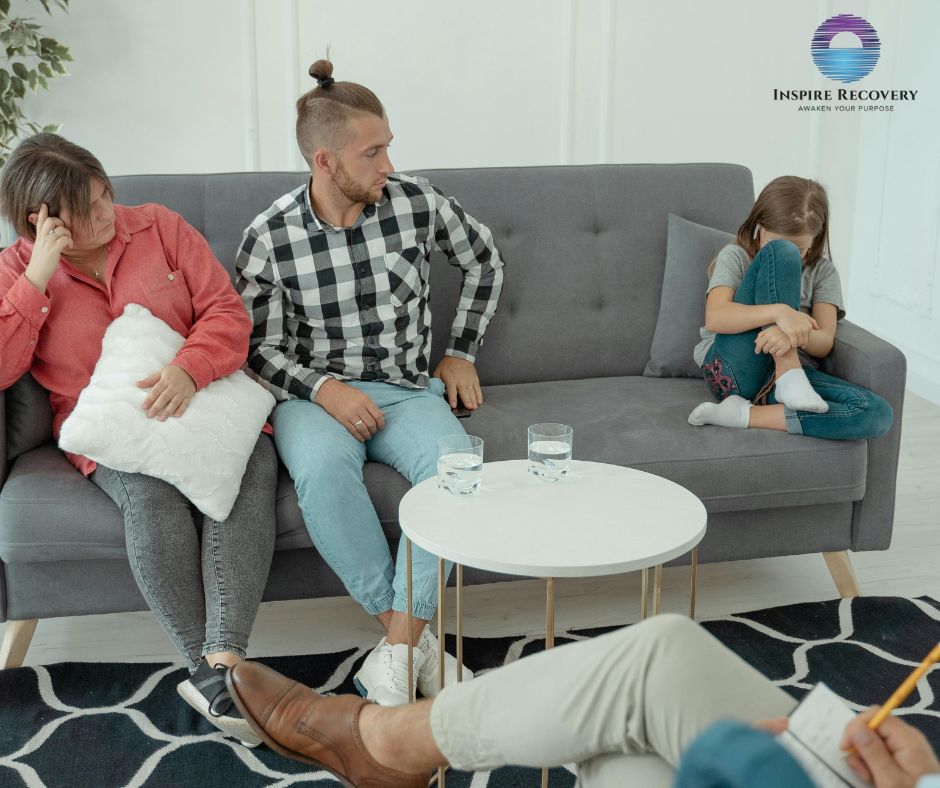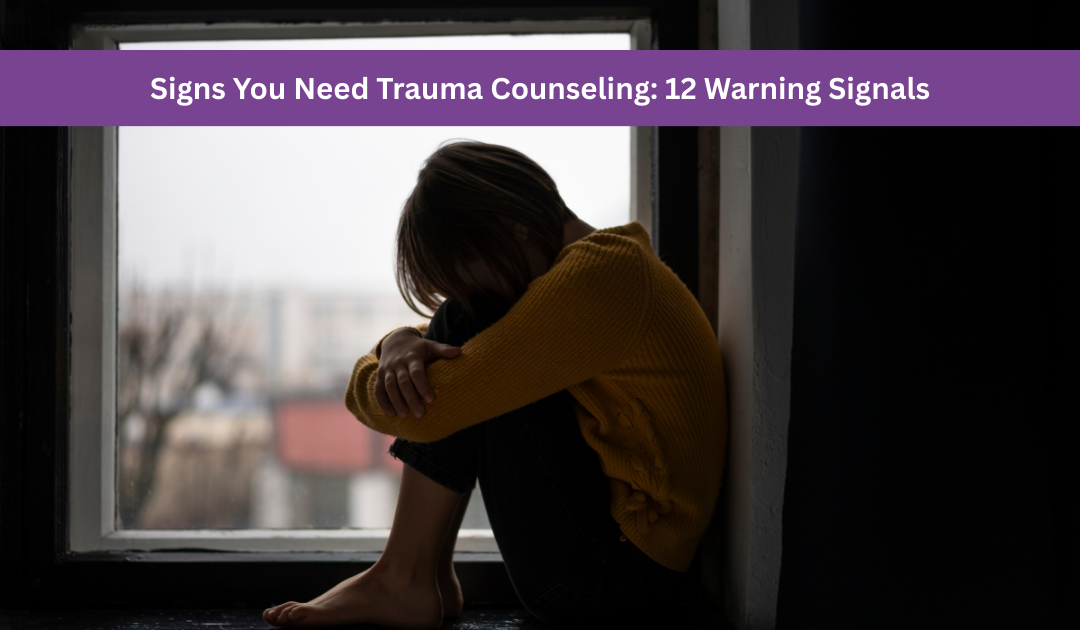Every family has ups and downs. Sometimes life feels easy, and sometimes it feels like everything’s falling apart at once. When you’re tired of arguing, walking on eggshells, or feeling like no one really listens, that’s usually the moment people start wondering if they need help.
As someone who has worked with many families, I can tell you this-it’s not about being broken. It’s about learning new ways to connect. That’s what family counseling services are for. They give families tools to talk, listen, and understand each other again.
If you’ve been asking yourself whether counseling could help, here are seven signs it might be time to give it a try.
1. You’re Arguing All the Time
A little arguing is normal. Every family disagrees. But if small things turn into full fights, or if old arguments keep repeating like a loop, that’s a sign something deeper is going on.
I often see families where the fight isn’t about dishes or chores-it’s about feeling unheard, unloved, or unappreciated. These emotions show up through anger, not words.
In counseling, we work to slow those moments down. You learn what each person is really trying to say. With the right support, those heated moments can turn into calm talks where everyone feels respected. That’s when change starts.
2. No One Talks Anymore
Some families stop talking altogether. Maybe silence feels safer than another fight. Or maybe everyone is too tired to try. The house might be quiet, but it doesn’t feel peaceful-it feels distant.
When silence takes over, families start to drift apart. That’s when family counseling services make a difference. A counselor helps reopen that line of communication in a gentle, safe way. No one gets blamed. Everyone gets a chance to speak.
You’d be surprised how many families begin to heal after one honest conversation. Sometimes people just need a space where they’re truly heard.
3. Life Changes Feel Too Heavy
Life changes can shake the strongest families. Losing a loved one, divorce, moving to a new place, or financial struggles-all of these can put a heavy load on everyone.
It’s normal to feel overwhelmed. But when sadness, stress, or tension lasts too long, the family starts to lose balance. People get frustrated more easily. Small things start to hurt more.
A counselor helps families handle those emotions together. Through family counseling services, you learn to process change instead of fighting it. Everyone gets a chance to express how they feel and find comfort in knowing they’re not alone.
4. Your Child’s Behavior Has Changed
When a child’s mood or behavior suddenly changes, it’s often a sign something’s wrong underneath. Maybe they’ve become angry, withdrawn, or anxious. Sometimes parents think it’s “just a phase,” but kids often show stress through their actions, not their words.
Family counseling helps parents understand what’s really happening. Instead of focusing on punishment or blame, we focus on communication. When children feel safe and heard, their behavior usually improves on its own.
Many parents tell me, “I wish we had done this sooner.” Counseling gives you the tools to support your child without feeling helpless or frustrated.
5. Emotional Distance Feels Normal
There are homes where everyone’s busy but no one’s really connected. You eat dinner together, but no one talks. You share a space but not your life.
Over time, that emotional gap becomes normal. But deep down, everyone misses the closeness that once was there.
In sessions, I help families rebuild that connection through small, meaningful steps. It might be as simple as spending 10 minutes together without phones or learning to ask better questions. Through family counseling services, families rediscover warmth and laughter again.
The goal isn’t perfection-it’s presence. Being there for each other, even in small ways, can heal more than you think.
6. You Feel Like You’re Walking on Eggshells
Have you ever felt afraid to speak your mind at home? Like one wrong word could start another argument? When that happens, people stop being honest. They start pretending everything’s fine, even when it’s not.
That kind of tension wears everyone down. You might feel anxious, tired, or disconnected from the people you love most.
A counselor helps families handle those emotions together. Through family counseling services, you learn to process
In counseling, we look at what’s behind that tension. Is it stress? Fear? Past resentment? Once you understand the reason, it’s easier to find peace. Families learn to talk without judgment and to listen without defense.
Over time, the home becomes a safe place again. And that’s something every family deserves.
7. You’ve Tried Everything, But Nothing Works
Most families try to fix problems on their own first. They talk, make promises, and hope things will get better. But when issues keep coming back, it usually means you need new tools-not more effort.
A counselor brings a neutral perspective. They see patterns you might miss. Through family counseling services, families learn skills that actually last. You start understanding, not reacting.
Many families tell me they were nervous before starting. But once they did, they realized it wasn’t about blame-it was about building new habits. When everyone learns to communicate better, even long-standing conflicts start to fade.
Why Counseling Is a Sign of Strength
Some people think going to therapy means something’s wrong with them. That’s not true. Counseling isn’t about weakness-it’s about taking care of what matters most: your family.
When you reach out for help, you’re showing love and responsibility. You’re saying, “We’re worth fixing.” That’s the strongest thing you can do.
Family counseling doesn’t fix everything overnight, but it gives you the foundation to rebuild. You learn how to talk, forgive, and move forward together.
What Happens in a Counseling Session
Many families feel nervous before their first session. That’s normal. You don’t have to know what to say. You don’t need to prepare a speech.
You’ll sit together, and the counselor will help guide the talk. Everyone gets a turn to share. The focus isn’t on who’s right or wrong-it’s on what’s happening underneath. Sometimes people cry. Sometimes they laugh. That’s all part of healing.
Sessions usually happen once a week and last about an hour. You’ll leave each one feeling a little lighter, like you finally have a plan. The counselor helps you set small goals, and over time, you’ll see things start to change at home.
How to Get Started
If you’re reading this and thinking, “This sounds like us,” then you’ve already taken the first step-recognizing there’s something to work on. That’s brave.
Start by finding family counseling services near you. Look for someone who feels approachable and easy to talk to. You can ask your doctor, your child’s school counselor, or a trusted friend for recommendations.
It might take a few tries to find the right counselor, and that’s okay. What matters most is that your family feels safe and supported in the space you choose.
Final Thoughts
Every family faces challenges. What matters is how you face them together. Counseling isn’t about changing who you are-it’s about understanding each other better.
When you decide to seek help, you’re not giving up. You’re choosing peace. You’re choosing love. You’re choosing your family.
And sometimes, that’s all it takes to start healing.
Frequently Asked Questions About Family Counseling Services
1. How do family counseling services actually help a family?
Family counseling gives everyone a safe space to talk openly about their thoughts and feelings. A trained counselor helps guide conversations so that family members listen to one another instead of reacting out of anger or frustration. Over time, this helps build empathy, improve communication, and restore emotional balance in the home.
2. How long does it usually take to see results from counseling?
Every family’s journey is different. Some people start noticing small positive changes after just a few sessions, maybe better communication or less tension during arguments. For others, deeper healing can take a few months. What matters most is consistency and a shared commitment from everyone involved.
3. Can family counseling help if only one or two members want to join?
Yes, it can still help. Even if only one or two family members attend sessions, the counselor can equip them with healthy communication tools and coping strategies. Often, when one person changes their approach, it naturally encourages others to follow and the overall dynamic begins to shift.
4. What kind of issues can family counseling address?
Family counseling isn’t just for crisis situations. It helps with a wide range of issues such as constant arguments, parenting challenges, trust issues, and major life transitions like divorce or grief. It’s also useful when a family wants to reconnect emotionally after years of distance.
5. Is everything shared in counseling confidential?
Yes, confidentiality is a key part of family counseling. Your counselor is professionally bound to keep your discussions private unless there’s a risk of harm. This ensures everyone can speak honestly and feel safe knowing their words will not be shared outside the session.




